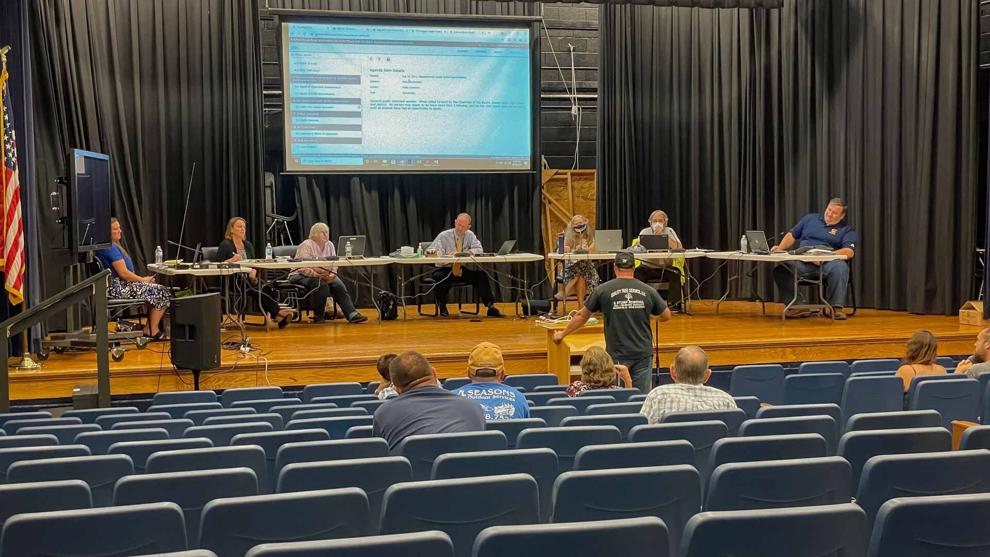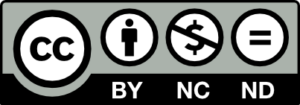With the first day of the new school year just hours away, the Rappahannock County School Board on Tuesday night voted to slightly adjust its masking policy, allowing the superintendent to mandate masks in the event of an outbreak — with the ability to remove the order once the virus’ spread is contained.
As it stands, parents still have the option to send their children to school unmasked (with the exception of students who ride the school bus, as federal law requires face coverings on public transit) unless Superintendent Dr. Shannon Grimsley says otherwise.
Members considered a handful of options, including a hybrid model where students would be required to mask only while traveling in the hallways between classes, before arriving at the updated policy. It was decided following nearly two hours of debate between members and a lengthy public comment section — where many pleaded with the Board to not mandate masks.
All members voted in favor of the measure except for Rachel Bynum, of Piedmont District, who abstained after giving a speech about why she believed masking should be mandated. She would have preferred the option that required students to be masked in the hallways.
“I didn’t think it represented enough safety for our kids at this time, but I respect the Board’s decision,” Bynum said after the meeting.
As the discussion progressed, Bynum said she became persuaded by arguments made about the effects of masking on childrens’ mental health. Still, it wasn’t convincing enough to push her over the edge and support the body majority.
“I believe that as a School Board, we should do all in our power to keep school open 5 days a week and to limit people missing days of school due to sickness or quarantine,” she wrote in a prepared statement that was read aloud at the meeting. “Requiring masks is necessary to have any reasonable hope of that happening. I feel we would be negligent, knowing what we do, to jettison a valuable and immediately available tool against spreading Covid at this time.”
Many members of the public who spoke before the Board during the public comment section of the meeting cited a host of misinformation about the efficacy of masking in their attempts to persuade the Board to not require them in schools.
Others decried the social and emotional impacts they said masking has on their children. In an interview, Grimsley attested to the potential negative consequences of masking for students.
“Based on our own data, [masks] did have a social and emotional impact on our young learners. It did delay things like social and emotional connection,” Grimsley said. “Also language proficiency and development because at that age it’s very important that they see social interactions happening. And how to form letter sounds. Those things were barriers. So working with the glass shields and kids wearing masks, it did present an educational challenge at that age level.”
Kathy Sickler, the school district’s social worker, in an interview also said that masking proved to be difficult for some students.
“With the little ones, we saw more fidgeting. With the older ones, we saw more irritability. It definitely has made it harder for kids to communicate When talking with peers, it’s harder to read facial cues,” she said. “Sometimes, it’s a little harder to hear so it’s harder to hear tones and inflection in voices, which impedes social communication. If you’re not good at communicating in the first place, and you throw something like that in the mix, everything gets all swirled around.”
A few residents who spoke in favor of masking shared fears of unwittingly exposing their elderly parents to the virus or having their child with a pre-existing lung condition become infected.
Public health experts largely agree that masks are an incredibly effective tool to use in preventing spread of the virus. Virginia Department of Health (VDH) Population Health Coordinator April Achter said last week that masking in schools helps to keep students learning in-person without them having to become quarantined if a student in the classroom tests positive.
While the meeting marked the Board’s regularly scheduled August session, it followed an emergency meeting held last Wednesday that was called following the Centers for Disease Control and Prevention revising its guidance to recommend that all K-12 students wear masks in the fall as the highly infectious delta variant has given rise to a new surge in reported COVID-19 cases across the country, primarily in unvaccinated pockets. VDH in July also recommended that all elementary schools require indoor masking.
At that meeting, the Board opted to not mandate universal masking in classrooms, instead maintaining its already established stance of strongly recommending the practice.
But after last week’s emergency session, Virginia Gov. Ralph Northam, a Democrat, claimed that schools not mandating masks were in violation of the law. That proclamation caused a stir among superintendents across the state who raced to determine whether their district’s policies required change.
Because of vague language in state law, there is little legal consensus on whether schools are actually required to mandate masking, leaving the Board to bear the risk of litigation regardless of its decision on the matter, Grimsley said.
She noted on Friday that Northam’s claims caught her off guard as there was no forewarning from Richmond.
“I wish he would just do a mandate, honestly … because the whole time we’ve been led to believe we have local autonomy,” Grimsley said.
The superintendent last week also presented data to the body on the district’s record containing the spread of the virus throughout the previous school year, as well as new mitigation efforts and the results of a parent and staff survey on masking in school.
Per the survey’s results, 60 percent of parents and staff said they wanted masking to remain optional, while 30 percent said they wanted universal masking, according to Grimsley.
Also at last week’s meeting, Board Member Chris Ubben, of Wakefield District, dismissed masking as a fear mongering device, saying that the mitigation efforts the school already has in place, such as a revamped ventilation system, are sufficient for preventing spread.
“It’s a band-aid. It makes you feel better,” he said of masks.
Board members Lucy Maeyer, of Hampton District, Vice Chair Larry Grove, of Stonewall-Hawthorne District, and Chair Wes Mills, of Jackson District, were all far less critical of masks last week, but nonetheless steadfast in their preference to leave them optional in schools.
At Tuesday’s meeting, Grove was much more vocal about his support for permitting masking under certain circumstances, as was Maeyer. But Ubben still strongly opposed most measures that required masks.
Mills repeatedly maintained that he was in favor of a compromise between ordering masking for everybody and forbidding the ability to mandate them altogether. He wanted to ensure the implementation of a procedure to require masks if cases spike, but also include a mechanism to facilitate de-escalation of masking when a potential surge subsides.
The body also wanted to ensure that whatever policy was implemented clearly demonstrates their efforts to mitigate spread of the virus in the event of litigation.
In other business, the Board approved an application to receive $1.1 million in American Rescue Plan funding for the school system — 20 percent of which must be spent on addressing learning loss among students as a result of educational challenges associated with the pandemic. The money will be allocated to the schools by the Rappahannock County Board of Supervisors if the application is approved.



